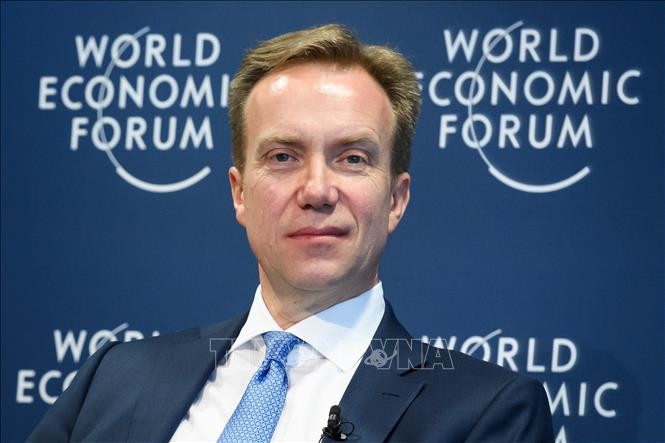(VOVWORLD) - In the first days of 2024, the world received some negative forecasts for security, climate change, and economic growth. These predictions reflect the lingering impact of recent global disruptions.
 AI is ranked first in the list of risks in 2024. (Photo: CCO) AI is ranked first in the list of risks in 2024. (Photo: CCO) |
The World Economic Forum (WEF) on Wednesday published its "Global Risks Report 2024", outlining threats to global peace, stability, and economic growth. This year non-traditional threats have moved to the forefront.
Artificial Intelligence is the gravest threat
Since last September, the WEF has collaborated with Zurich Insurance Group to survey 1,400 experts, policymakers, and leaders on their gravest concerns. “False news and fake news created by AI" topped this year’s list.
Managing Director at the World Economic Forum Saadia Zahidi said: “As we enter 2024 fairly pessimistic outlook. In term of the overall outlook for the next 2 years and 10 years, we see that there is a progressive worsening of that outlook. We have in the two-year time frame, misinformation will be the number one risk.”
This year 3 billion people, nearly half the world’s adult population, will vote in very important elections, including in the US, Russia, India, South Africa, Mexico, and the European Union.
There is a high risk of AI being used to conduct false information campaigns, manipulate voters’ psychology, and distort election results. Carolina Klint, Risk Management Leader for Continental Europe at Marsh McLennan and co-author of the WEF report, said AI can create models to influence a large number of voters in a way the world has never seen before, threatening democratic processes and leading to further social polarization, riots, strikes – even intra-state violence.
The report pointed to extreme weather, polarization in societies, armed conflicts between countries, cyberspace insecurity, lack of economic opportunity, inflation, forced migration, economic recession, and pollution as the greatest threats to global peace, stability, and economic growth.
 WEF President Borge Brende. (Photo: AFP/VNA) WEF President Borge Brende. (Photo: AFP/VNA) |
WEF President Borge Brende said the world must relearn how to cooperate, starting with the annual World Economic Forum in Davos from January 15 to 19.
“Since 2016 we have seen that cooperation has gone down. Since 2020 it has really plummeted. It has gone from 14 million people being displaced to a hundred and ten million. We’ve seen cyber attacks increased 4 folds. We have to bring together the right people to see how we can, in this very challenging world, look at opportunities for cooperation,” said Brende.
Pessimistic predictions
The WEF’s Global Risk Report reflects the caution and pessimism that is dominating global socio-economic forecasts for 2024 by many international organizations.
The UN’s report, World Economic Situation and Prospects 2024, published on January 4, said weak global trade, high borrowing costs and public debt, and rising geopolitical tensions will put global growth at risk this year.
The report projected that global economic growth will slow to 2.4% this year from an estimated 2.7% in 2023. Major economies like the US, China, the EU, and Japan are forecast to have an unsatisfactory economic performance. The world's biggest economy, the US, is expected to grow just 1.4% compared to last year’s 2.5%.
The report forecast that the short-term growth prospect of developing countries in East Asia, West Asia, Latin America, and the Caribbean will decrease due to tightening financial conditions, a shrinking financial space, and stagnant external demand. The world will find it hard to return to the 3% average rate recorded before the COVID-19 pandemic.
“The global economy has been remarkably resilient, despite a barrage of shocks. But the global slowdown continues. In fact, this will be a third year of global growth slowing. We will see growth around 2.4% last year it was 2.6%. There are still a multitude of risks concerning the global economy,” WB Deputy Chief Economist Ayhan Kose said.
The World Bank says that, excluding the decline due to the COVID-19 pandemic, 2024’s growth rate will be the weakest since the 2009 global financial crisis. As a result, the world will be unable to lift its growing population out of poverty. By the end of 2024, people in one out of every four developing countries and about 40% of low-income countries will be poorer than they were on the eve of the COVID pandemic in 2019.